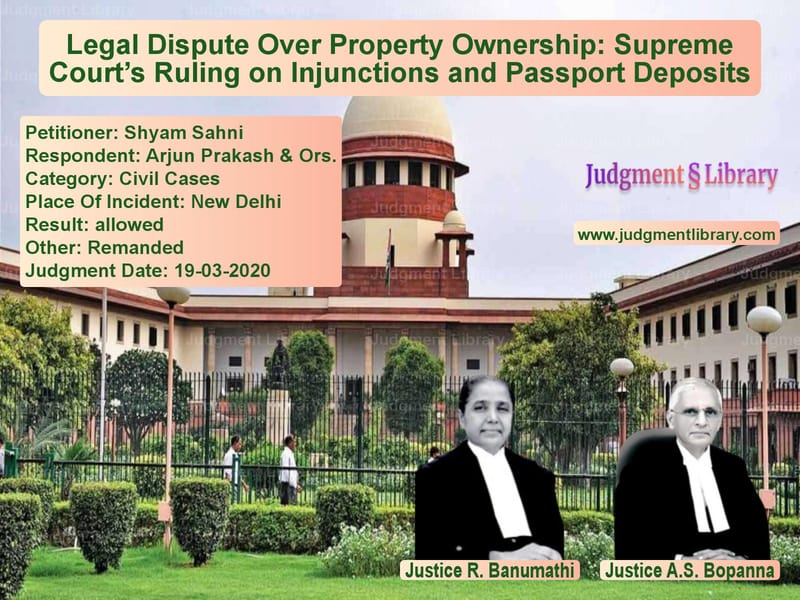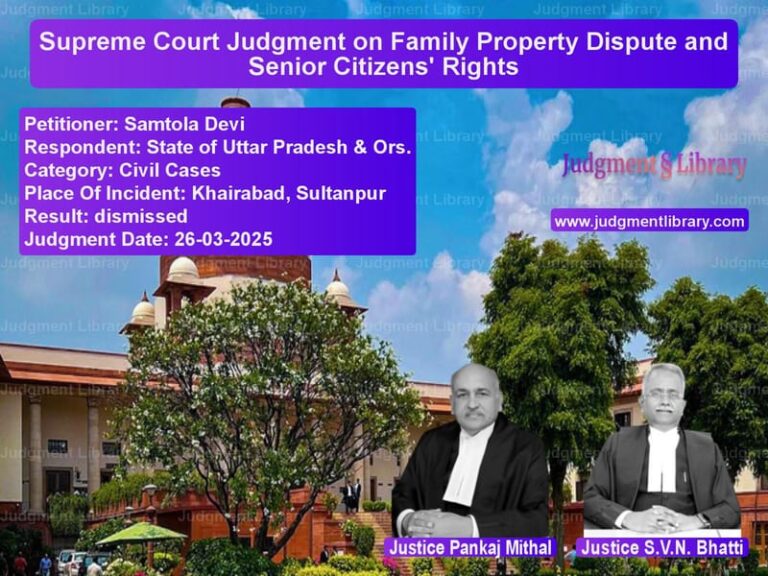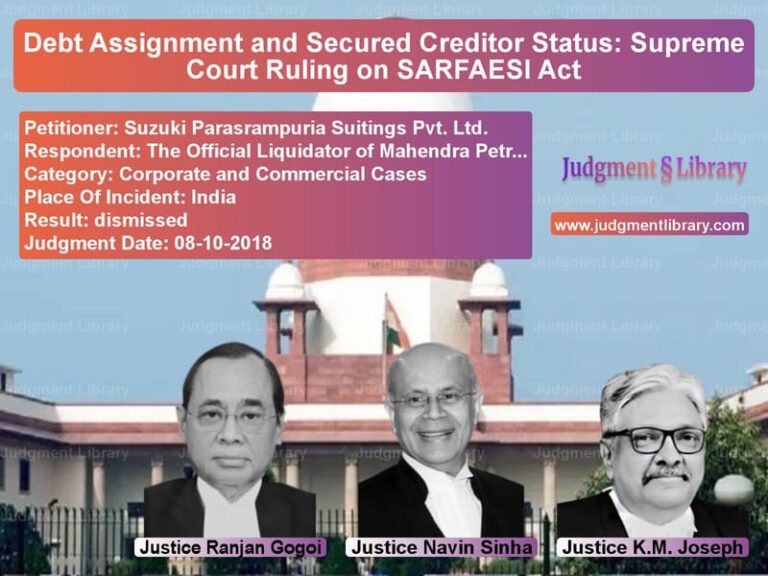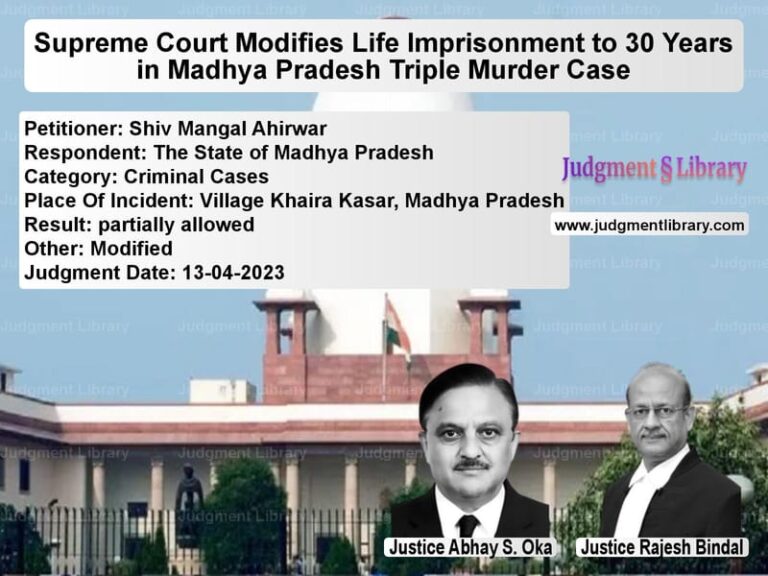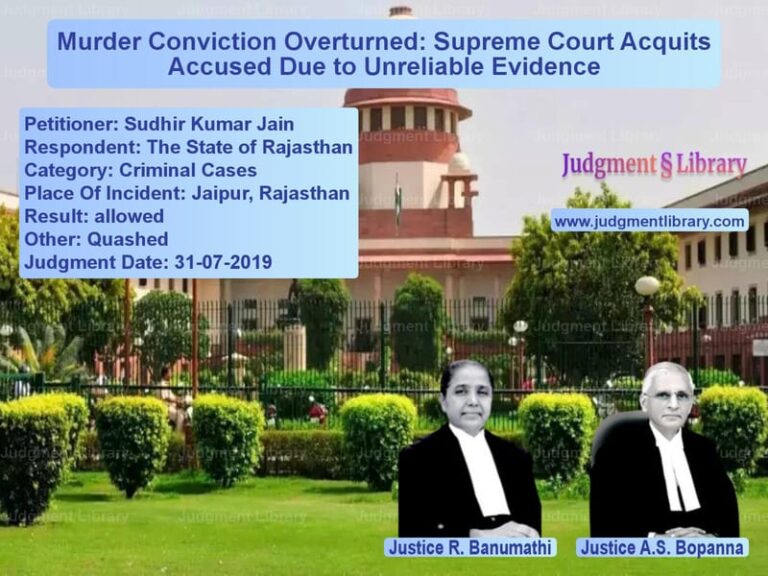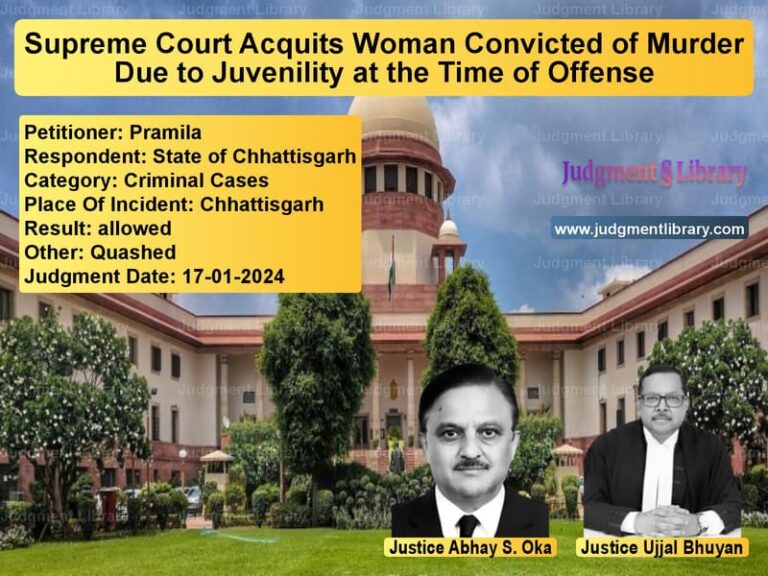Legal Dispute Over Property Ownership: Supreme Court’s Ruling on Injunctions and Passport Deposits
The Supreme Court in Shyam Sahni v. Arjun Prakash & Ors. ruled on a contentious property dispute involving claims of ownership, contempt proceedings, and judicial directions requiring the deposit of a passport. The case revolved around a long-standing civil suit concerning property at Friends Colony (West), New Delhi, and the enforcement of undertakings given to the court.
Background of the Case
The appellant, Shyam Sahni, filed a civil suit in 2008 seeking a declaration, permanent injunction, and possession of property. He alleged that the respondents had fraudulently executed documents and sale deeds concerning the first and second floors of the property, originally owned by his mother, Niamat Sahni. He contended that these transactions were unauthorized and challenged the ownership claims of the respondents.
In response, the respondents argued that the property had been legally partitioned and that the first floor was rightfully theirs. They produced multiple documents, including a will from 1984 and a subsequent will from 1992, to substantiate their claim.
Petitioner’s Arguments
The appellant contended:
- That the respondents had fraudulently created documents to claim ownership over the first and second floors of the property.
- That a will executed in 1992 divided the property differently, which the respondents failed to acknowledge.
- That the respondents violated an injunction order from 2008 by mortgaging the disputed property and obtaining loans against it.
- That contempt proceedings should be initiated due to the respondents’ repeated failure to comply with court orders.
Respondent’s Arguments
The respondents countered with the following arguments:
- That the property was legally partitioned based on a family settlement executed in 1999.
- That their mother, Usha Prakash, had acquired rights over the first floor through valid documentation, including a General Power of Attorney and a sale deed.
- That financial difficulties prevented them from clearing encumbrances on the property, despite earlier commitments.
- That the injunction order was passed after the mortgage had already been created, and therefore, no contempt was committed.
Supreme Court’s Observations
The Court scrutinized the evidence and the conduct of the parties. The judgment made several key observations:
“Having filed the undertaking, it was required of the respondent to keep up to his undertaking filed before the Court. The repeated failure to comply with undertakings justifies the order directing deposit of the passport.”
On the issue of contempt, the Court remarked:
“Since repeated undertakings were filed and not complied with, the learned Single Judge was right in directing the deposit of the passport to ensure the respondent’s presence in court.”
Final Judgment
The Supreme Court set aside the order of the Division Bench, which had directed the return of the respondent’s passport. The Court upheld the Single Judge’s order requiring the respondent to deposit the passport to ensure compliance with judicial directives. However, it declined to reinstate the contempt petition, instead directing the High Court to expedite the trial.
Key Takeaways
- The Court affirmed that parties who give undertakings to the court must comply with them, failing which coercive measures can be justified.
- Judicial orders requiring the deposit of passports are valid tools to ensure compliance in contempt proceedings.
- The ruling emphasizes the importance of upholding court orders and preventing fraudulent transactions concerning property disputes.
- The judgment ensures that long-pending civil suits are resolved expeditiously while maintaining the integrity of judicial proceedings.
Conclusion
This ruling establishes a significant precedent regarding the enforcement of undertakings in property disputes. By upholding the judicial power to require passport deposits, the Supreme Court reinforces the principle that parties cannot evade legal proceedings through non-compliance. The judgment balances the need for legal accountability with the expeditious resolution of long-standing disputes.
Petitioner Name: Shyam Sahni.Respondent Name: Arjun Prakash & Ors..Judgment By: Justice R. Banumathi, Justice A.S. Bopanna.Place Of Incident: New Delhi.Judgment Date: 19-03-2020.
Don’t miss out on the full details! Download the complete judgment in PDF format below and gain valuable insights instantly!
Download Judgment: Shyam Sahni vs Arjun Prakash & Ors. Supreme Court of India Judgment Dated 19-03-2020.pdf
Direct Downlaod Judgment: Direct downlaod this Judgment
See all petitions in Property Disputes
See all petitions in Specific Performance
See all petitions in Contract Disputes
See all petitions in Judgment by R. Banumathi
See all petitions in Judgment by A. S. Bopanna
See all petitions in allowed
See all petitions in Remanded
See all petitions in supreme court of India judgments March 2020
See all petitions in 2020 judgments
See all posts in Civil Cases Category
See all allowed petitions in Civil Cases Category
See all Dismissed petitions in Civil Cases Category
See all partially allowed petitions in Civil Cases Category

